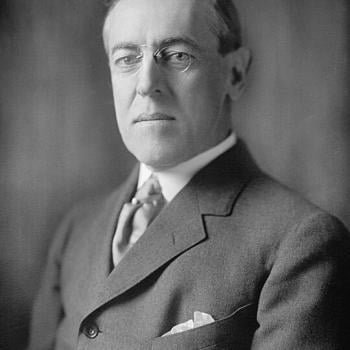Lectionary Reflections
1 Kings 8:22-23, 41-43
June 2, 2013
I have often wished that the same writer who gave us those unforgettable stories of Samuel, Saul, and David (in the books of Samuel) had continued the story of the next generation of Israel's leaders, especially the memorable Solomon, David's son with the infamous Bathsheba. One can only imagine the saucy tales that might have been shared about the king who purportedly wrote vast numbers of proverbs, who married hundreds of wives, not to mention having relations with a vast number of concubines and being known for unsurpassed wisdom (see the famous story of the prostitutes and a child in 1 Kgs. 3).
Alas! The Deuteronomic Historian, a deeply ideological author, got a stranglehold on the Solomonic material and bent it to his specific desires. What makes this propaganda so easy to read in Hebrew—its limited vocabulary, its simple sentence structure, its constant repetitions—is what makes it far less interesting for modern readers. The reading from 1 Kings 8:23-24 is a parade example; if you hear it once, you hear it many more times. Solomon is dedicating the newly built temple in Jerusalem, and assuming the orans position of prayer (hands raised and widely outstretched), he intones:
YHWH, God of Israel, there is no God like you in the sky above or on earth beneath, keeping covenant and unbreakable love (chesed) for your servants who walk before you with all their heart, the covenant that you kept for your servant my father David as you declared to him; you promised with your mouth and this day fulfilled with your hand.
It is Deuteronomy that supplies Judaism with its creedal statement: "Hear, O Israel, YHWH is our God, YHWH alone." This powerful claim of strict monotheism is a hallmark of the 7th-century Deuteronomist. And that YHWH from the beginning has made a unique covenant, a treaty, with Israel, YHWH's chosen people, and YHWH has kept that covenant without fail, offering unbreakable devotion to the people "who walk before you with all their heart." We remember that in Hebrew anthropology the heart is the source of will and intelligence. To love God with the whole heart is to devote single-mindedness to YHWH only, to will what YHWH wills, to act as YHWH calls all to act. And when all that happens, when YHWH's love is recognized and when the people act out of that love and covenant alone, Israel is successful, reaping the benefits of YHWH in all things. The newly consecrated temple is merely a physical manifestation of that success.
If you do well, as YHWH commands, it will be well with you. Thus speaks Deuteronomy again and again and again. And his words have resonated well into our own time, as preacher after preacher has said much the same: follow God's command and you will prosper; but fail to heed the divine will and you will suffer. Even though the book of Job was designed specifically to knock such a view into a cocked hat, I fear the Deuteronomist has regularly gotten the last laugh. In my many places of preaching and teaching, I have rarely failed to hear the old idea bruited about that strict attention to God's demands will lead inevitably to power, success, wealth, comfort, etc.
Unless you have lived under a rock for your entire adult life, you know with a certainty not to be gainsaid that this belief is, not to put to fine a point on it, hooey. We all know people, we may in fact be people, for whom following our/their understanding of God's will has not led to success at all. One could readily say that the prime example is the one we call Christ, who followed the will of his God with supreme faithfulness, and the result was a short life and a monstrous death. Surely, there must be more to this Deuteronomic fellow than that simplistic notion.
Fortunately in this small passage, there is more—two "mores," at least. The first insight I wish to note is the result of the information that the rest of the Bible offers to me about the great king David, the father of this very Solomon. Though the Deuteronomist blithely tosses off his litany about how YHWH has never removed steadfast love from David, and is demonstrating that fact with the dedication of the Jerusalem temple, what we all know about this David, having read the shocking stories of 1 and 2 Samuel (wherein David breaks at least five of the ten commandments; see Dt. 5), could have led us to believe that the very last person YHWH would regard with unbreakable love is this nasty David! We should never miss the astonishing claim throughout the Deuteronomic literature that David was somehow YHWH's boy. Really??!! David? If God can love David, there may be hope for us!
The second "more" is found in the quite amazing claims concerning foreigners found in 1 Kings 8:41-43. Again, the broader context is crucial. If this material is the product of the 7th century B.C.E., what do the readers of that time know and think about foreigners? They will have lived cheek-by-jowl with foreigners their whole lives. Direct descendants of Canaanites and Philistines, not to mention some farther afield like Hittites, continued to form important parts of the population of the land. Some of these had lived in Israel for generations, while others were relative newcomers. Each of these gerim (strangers, foreigners, sojourners) brought with them elements of culture and language that clashed with what some Israelites felt certain were the proper ways actually to be Israelite.





